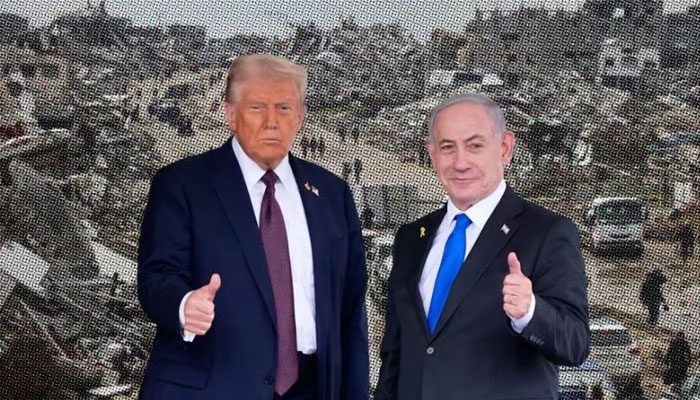Trump Sees Breakthrough in Gaza Peace Talks as US, Israel, Hamas Engage
Trump has pressed Israel to suspend bombing during talks, and while residents report a reduction in airstrikes, the bombing has not fully ceased
Washington, DC — President Donald Trump expressed optimism on Monday that a Gaza deal is imminent, citing “tremendous progress” in recent negotiations. Speaking to press in the Oval Office, he reiterated the urgency of reaching a resolution soon.
The Trump administration is actively pushing forward a proposed blueprint to end the Gaza conflict, with technical-level discussions underway, White House spokesperson Karoline Leavitt confirmed. The timing is key: Israel and Hamas have begun indirect talks in Egypt under U.S. mediation that Washington hopes will halt the fighting.
The framework Trump supports calls for a ceasefire, the release of hostages, and the flow of humanitarian aid into Gaza. Both Israel and Hamas have voiced support for the overarching principles of the plan. Arab and Western nations are backing the effort as well. Trump has urged swift movement toward a final agreement, calling the current window the most promising yet in resolving the two‑year war.
Trump has framed himself as the only global leader capable of delivering peace in Gaza. He has invested heavily in mediation efforts that aim to reverse the conflict’s devastating toll—tens of thousands killed, infrastructure decimated, and Israel’s reputation under strain. On social media, Trump asserted, “The first phase should be completed this week, and I am asking everyone to MOVE FAST.”
Still, both parties are digging into critical details that have sunk past deals. Key questions remain over when and how Israel might withdraw forces, how hostages and prisoners would be exchanged, and whether Hamas would disarm. Trump has pressed Israel to suspend bombing during talks, and while residents report a reduction in airstrikes, the bombing has not fully ceased.
In the past 24 hours, Gaza health officials reported 19 fatalities from Israeli strikes—about one-third of the recent daily average. Meanwhile, indirect diplomatic talks opened in Sharm el‑Sheikh, Egypt, with U.S., Egyptian, and Qatari mediators facilitating.
Read more: Israel deports 171 activists from Gaza-bound flotilla.
These talks coincide with the second anniversary of the Hamas assault that triggered the war—when militants killed 1,200 people in Israel and took 251 hostages. In retaliation, Israel’s campaign has killed over 67,000 Palestinians and displaced millions.
Hamas appears to be demanding firm guarantees that Israel will fulfill its withdrawal promises. Israeli sources, however, state that negotiations will focus initially on hostage returns, not troop pullbacks beyond a limited “Yellow Line” buffer zone under Trump’s plan.
As ground forces press deeper into Gaza City, residents are pinning their hopes on a ceasefire. “If there is a deal, then we survive. If there isn’t, it feels like a death sentence,” said 20‑year‑old Gharam Mohammad, displaced with her family.
Within Israel, political pressure for an end to the war grows. Yet Prime Minister Benjamin Netanyahu faces strong resistance from right‑wing allies opposed to halting operations. Israel’s negotiating team includes Mossad and Shin Bet officials, along with Netanyahu’s foreign policy advisers; Strategic Affairs Minister Ron Dermer may join later this week.
U.S. envoys Steve Witkoff and Jared Kushner are also participating. Leavitt said negotiators are “going over the lists of both the Israeli hostages and political prisoners who will be released.” But insiders warn that meeting Trump’s 72‑hour target for hostage returns may prove impossible—some remains may be buried under rubble across combat zones.
Deep distrust between Hamas and Israel threatens to derail progress. Hamas and other Palestinian factions fear Israel might walk away after recovering hostages. Meanwhile, Israeli negotiators argue Hamas must lay down arms—a condition the group rejects unless Israeli occupation ends and a Palestinian state is established.
Though the path is fraught, all eyes now turn to Cairo and Sharm el‑Sheikh as the most concrete effort yet begins to test whether diplomacy can succeed where war has failed.




Comments are closed, but trackbacks and pingbacks are open.